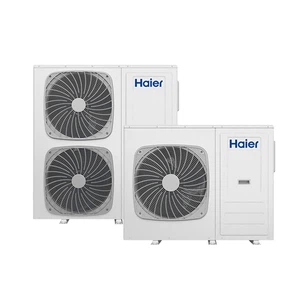The heat pump industry in Europe has seen rapid development in recent years, driven by the emphasis of European governments on improving energy efficiency and reducing carbon emissions. Here are some key points:
Policy Driven: The European Union and its member states have introduced numerous policies to support the development of heat pump technology. For example, the EU's "REPowerEU" plan aims to double the deployment rate of heat pumps, with a target of installing 10 million heat pumps by 2025. Additionally, governments have provided subsidies and tax incentives to reduce the initial investment costs for consumers.
Market Growth: In 2022, the European heat pump market reached sales of about 3 million units, a year-on-year increase of 38%, doubling since 2019. Significant growth in the heat pump markets of countries such as Germany, Norway, Finland, and Switzerland has been observed, with the German market growing by 53%.
Energy-saving Effects: As an efficient heating technology, heat pumps can significantly reduce energy consumption and carbon emissions compared to traditional fossil fuel boilers. It is estimated that the heat pumps sold in 2022 replaced about 4 billion cubic meters of natural gas, avoiding about 8 million tons of CO2 emissions.
Technological Advancements: Heat pump technology continues to advance, including the development of high-temperature heat pumps, waste heat recovery, industrial drying, and combined cooling and heating systems. These technological advancements have made heat pumps more widely applicable in industrial sectors, aiding in decarbonization efforts.
Economic Viability: Although the initial investment cost of heat pumps is high, their high energy efficiency results in lower long-term operating costs. With current energy prices, families using heat pumps can save substantial energy costs annually, and as technology matures and production scales up, the cost of heat pumps is expected to decrease further.
Employment and Supply Chain: The rapid development of the heat pump industry has also created job opportunities in Europe and stimulated the development of related supply chains. It is estimated that by 2030, the global heat pump supply and installation may require more than 1.3 million workers, almost three times the current number.
Challenges and Opportunities: The rapid expansion of the heat pump market brings challenges, such as the need for grid upgrades and a shortage of technical personnel. However, this also presents significant market opportunities for heat pump manufacturers, installers, and related supply chain enterprises.




